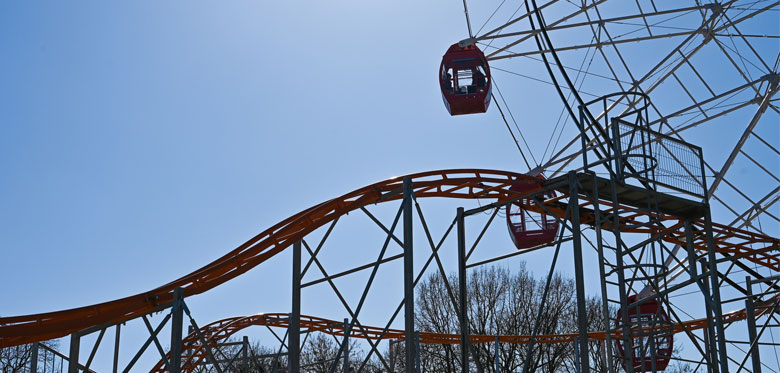As the school summer holidays are fast approaching, many families will be looking to visit amusement parks around the UK and abroad. These parks are designed to be fun and enjoyable for all visitors but this is not always the case. Recent studies have shown that almost 500 visitors report injuries at amusement parks and funfairs in the UK per year.
When at an amusement park, visitors put their whole trust in both the operator and systems in place to prevent any accidents occurring so it is not surprising that when things go wrong, it can cause devastating effects.
Amusement park injuries can be severe and can cause long-term health conditions. Where the rules, regulations or procedures in respect of maintenance, construction, organisation, operation and design of the park have not been followed and injury has occurred as a result, you may be entitled to claim for your losses relating to this injury.
Some of the most common causes of these types of accidents can include: the improper maintenance of a ride, negligence of ride operators, faulty rides, unsafe tracks or electrical failures and collisions.
“The “thrill of the fair” is a long-established tradition in which members of the public in great numbers, particularly children and young people, enjoy the excitement and illusion of danger. But it should be just that – an illusion. They do not actually expect to be injured.” – His Honour Judge Michael Chambers QC, R (HSE) v Merlin Attractions Operations Limited
Am I eligible to make an amusement park injury claim?
If you have suffered any injury at an amusement park which was not your fault, you may be eligible to make a claim. Likewise, if your child has suffered an injury, the same applies and the child is required to pursue their claim by a Litigation Friend, usually a parent or carer. You will also have to make the claim within three years from the date of your accident (or for a child you have until their 21st birthday to make the claim).
Injuries you are entitled to claim for can range from minor injuries such as minor fractures, soft tissue injuries and bruises to serious spinal injuries, PTSD or the amputation of limbs. Where a loved one has passed away due to a fatal accident occurring within a theme park, you may be able to make a claim under the Fatal Accidents Act 1976 on their behalf as long as you are a close family member or dependant of the deceased or the executor of their estate.
What do I need to prove for my claim to be successful?
Duty: That the amusement park itself owed a duty of care towards you, meaning they are required to adhere to a standard of reasonable care towards you. This will usually be easy to establish if you are a lawful visitor to the park.
Breach: That the accident was not your fault, and was caused by negligence on the part of another.
Causation: That you suffered some physical or mental injury and the breach of duty caused your injuries.
Limitation: You must bring your claim within three years of the accident date.
Evidence which may assist your claim will include accident report forms, witness statements, receipts of expenses incurred as a result of the accident and photographs of the accident scene or your injuries. Witness statements can be extremely helpful in proving your case which is why obtaining the details of anyone who may have witnessed your accident, the cause of your accident or the aftermath, can be very useful.
What will I be entitled to recover?
If successful in your claim, you will be entitled to both general damages and special damages, which are two separate awards. Read our short blog on what you may be entitled to here.
How can Stephensons help?
If you have suffered an injury as a result of an accident at an amusement park, it is strongly recommended that you seek medical help immediately, especially if your injury is serious.
Our specialist personal injury team can help you to bring a claim on your behalf and advise you on claiming back your losses. Call our experienced personal injury team today on 0161 696 6235.to discuss if you could be entitled to claim compensation.
By Lucy Moran, graduate paralegal



Comments